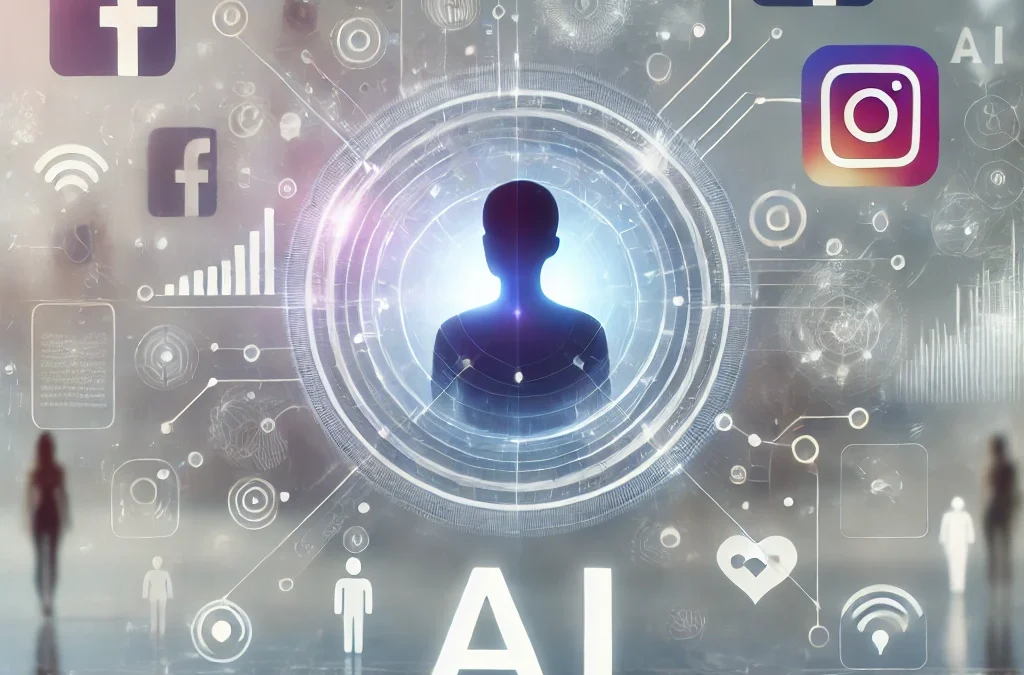Artificial Intelligence (AI) has transformed countless industries, and social media marketing is no exception. AI is changing how brands interact with customers by enabling personalized experiences, automating repetitive tasks, and boosting overall efficiency. Businesses that leverage AI-powered tools can refine their marketing strategies to achieve better engagement, higher conversion rates, and enhanced brand visibility.
The Role of AI in Social Media Marketing
AI is reshaping the way companies connect with their target audiences. By using advanced algorithms and machine learning, businesses can analyze vast datasets to uncover critical insights about consumer behavior, preferences, and emerging trends. This data-driven approach empowers marketers to craft campaigns that resonate with their audience, improving overall marketing outcomes.
Personalized Content Creation
One of the most impactful ways AI is transforming social media marketing is through personalized content. AI tools analyze user data, such as browsing behavior and interaction patterns, to create content tailored to specific audiences. Personalization drives higher engagement rates, as users are more likely to connect with content that reflects their preferences and interests.
For example, AI-powered platforms can identify the types of posts that resonate with certain demographics. These tools can suggest relevant topics and formats, helping brands create content that is both timely and engaging. By focusing on personalization, brands can differentiate themselves in a competitive digital landscape.
Automating Social Media Management
AI has revolutionized social media management by automating routine tasks. Tools powered by AI can schedule posts, respond to comments, and even handle customer inquiries through chatbots. This automation saves time, allowing social media managers to focus on strategic planning and creative initiatives.
AI tools also monitor brand mentions and track performance metrics in real time. By providing actionable insights, these tools help marketers adjust their strategies quickly and effectively. Automation ensures a consistent online presence while reducing the workload for marketing teams.
Enhanced Audience Targeting
One of AI’s most valuable contributions is its ability to refine audience targeting. By analyzing social media data, AI enables businesses to segment their audience based on factors such as demographics, interests, and online behavior.
This precise targeting allows brands to design campaigns tailored to specific groups, maximizing their impact. For instance, AI can suggest ad variations that align with different customer segments, increasing the likelihood of conversions. With AI, marketers can ensure their efforts reach the right people at the right time.
Sentiment Analysis for Brand Monitoring
AI plays a crucial role in understanding public sentiment toward a brand or product. Through sentiment analysis, AI tools can evaluate social media conversations to determine whether the feedback is positive, negative, or neutral.
This insight helps businesses gauge their audience’s perceptions and adapt their strategies accordingly. Negative feedback can be addressed promptly, while positive responses can guide future campaigns. Sentiment analysis provides a valuable pulse on consumer opinion, enabling brands to stay connected with their audience.
AI-Powered Social Listening
Social listening involves monitoring platforms for brand mentions, competitor activity, and industry trends. AI enhances this process by analyzing large volumes of data in real time, identifying emerging topics and conversations.
With AI-driven social listening, brands can stay ahead of industry trends and respond swiftly to changes in consumer behavior. Insights gained through this technology help marketers craft timely, relevant content and capitalize on opportunities as they arise.
Benefits of AI in Social Media Marketing
Integrating AI into social media strategies offers numerous advantages:
- Improved Efficiency: AI automates repetitive tasks, saving time and resources.
- Enhanced ROI: By delivering personalized and targeted content, AI increases engagement and conversion rates, improving return on investment.
- Actionable Insights: AI provides data-driven insights that guide decision-making, resulting in more effective campaigns.
- Better Customer Experience: AI-powered chatbots and automated responses ensure prompt and accurate interactions, boosting customer satisfaction.
Challenges of Using AI
While AI offers many benefits, it also comes with challenges. One major concern is the potential loss of jobs due to automation. However, human creativity and strategic thinking remain irreplaceable in the marketing process.
Another issue is data privacy. Since AI relies heavily on data, brands must ensure they comply with privacy regulations and safeguard consumer information. Ethical considerations should also guide how data is collected and used.
The Future of AI in Social Media Marketing
The future of AI in social media marketing is bright, with technology continuing to evolve and offer new opportunities. Advanced tools for video creation, predictive analytics, and hyper-personalization will redefine marketing strategies.
AI will also enhance how brands engage with customers, providing more meaningful and interactive experiences. By staying informed about AI advancements, businesses can maintain a competitive edge in the ever-changing digital landscape.
Conclusion
AI is transforming social media marketing, offering tools and insights that drive better engagement, efficiency, and results. From creating personalized content to automating tasks and analyzing sentiment, AI helps brands develop impactful, data-driven campaigns.
As AI technology evolves, its role in marketing will only grow more significant. Businesses that embrace AI innovations can improve their strategies, enhance customer experiences, and achieve long-term success in the digital age.
Adopting AI in social media marketing is no longer optional—it is essential for brands seeking to thrive in today’s competitive environment.


